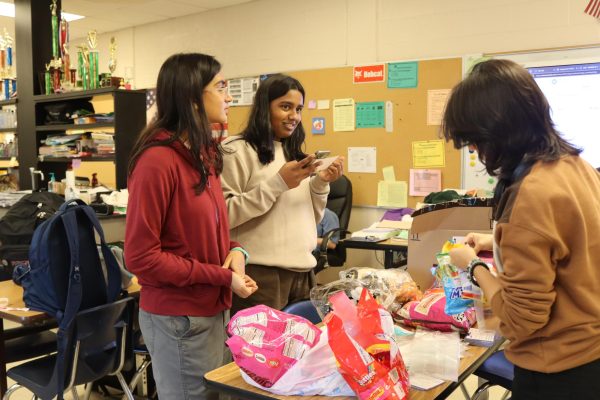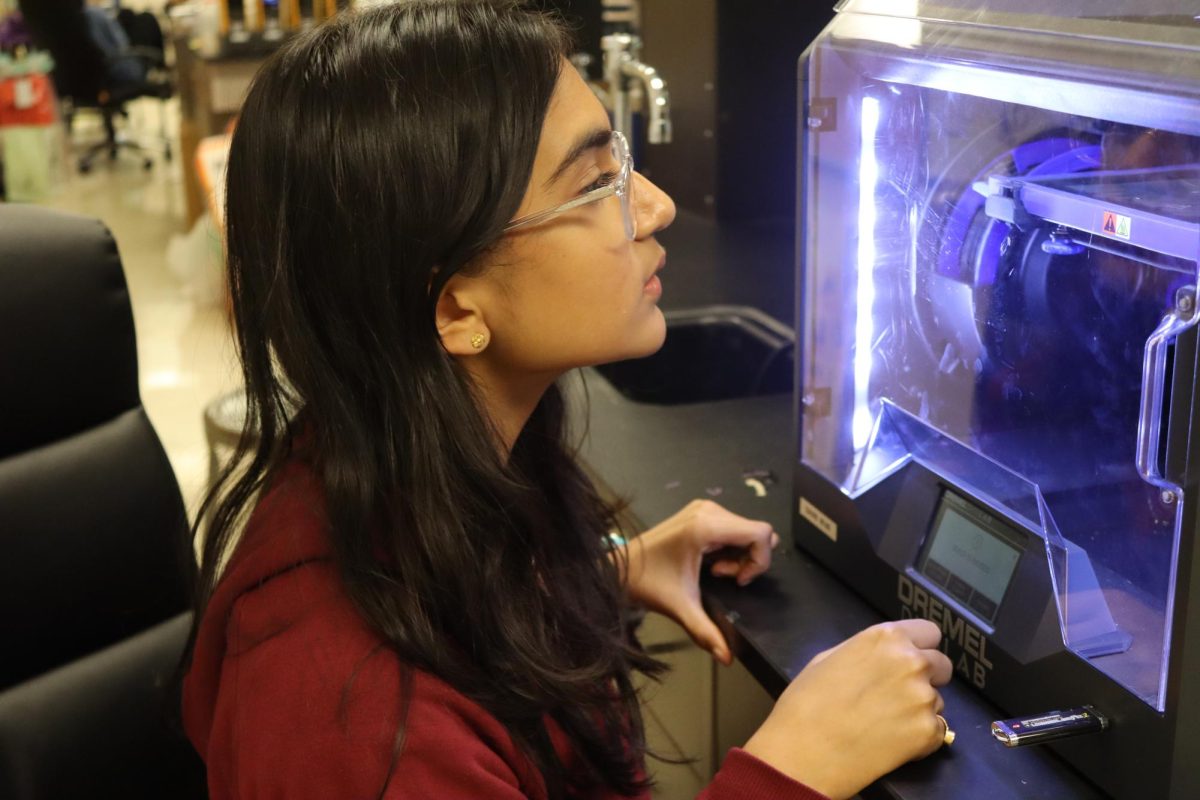“And the award goes to — White Station!” a phrase White Station High School’s (WSHS) STEM clubs never get tired of hearing, whether it be at regional, state or even national competitions. Each club has competitions that cover different topics; however, the clubs prepare similarly in that available competitions are either chosen or assigned and members self-study along with the help of the club for their competition. Anandi Durgam (12) is the co-president of the Technology Student Association (TSA) and co-captain of Science Olympiad. Part of her responsibilities includes ensuring members are prepared for competitions.
“Actually, my favorite part is winning events,” Anandi Durgam (12) said. “But yeah, like it’s really nice to win and get those medals. For Science Olympiad, [with] the studying and everything, we stay at school until like 9 p.m. the week before competition. And then it’s just so good to get [on the] podium for your events after seeing all of your work pay off.”
Both Science Olympiad and Math Team have types of competitions called invitationals. Invitationals are different from other competitions because they are not as selective, do not have levels of competition and are usually much larger in terms of participation. But if the team passes the regional competitions, they are able to continue to compete in the state, national and even international competitions. Health Occupations Students of America (HOSA), TSA and Science Olympiad all participate in regional competitions.
“So invitationals, they’re just practice rounds for regionals and state,” Durgam said. “If you pass regionals, then you get to go to states. It means you can keep leveling up. Invitationals [are] just an opportunity to gauge how [good] the other teams in the state and … outside of the state [are]. And if you need to improve or if you’re already doing good.”
There are competitions with different structures, such as in Science Olympiad, where certain events require a binder of notes. These binders consist of compiled research to be used when the members test for a specific event or subject. Other events will allow one sheet to reference, while some don’t allow any. Because certain competitions are very selective, members are consistently tested within the club after preparing individually.
“Science Olympiad, what we’ve been doing is we’ll be testing them [members] every month on the study events just to see who is doing good,” Durgam said. “We have to make binders and cheat sheets for our events — for the study events. So when we test them, we know if they’ve actually been going through those cheat sheets and binders too. We are able to gauge how they interacted with the material and to what extent.”
Charlotte Cheng (10) is a member of both the Math Team and Science Olympiad and has been competing in math competitions since third grade. She was also a part of the middle school Science Olympiad team. This year, she’s preparing for the 10A level of the American Mathematics Competition (AMC) which is designed for grades 10 and below. AMC is one of two testing opportunities to qualify for the American Invitational Math Exam (AME), which only tests the top six percent of competitors.
“[For AMC,] I take classes online, two hours of class a week, and then [I] do two mock tests, mock AMC tests, and then a 10-question problem set for a specific topic,” Cheng said.
As nice as winning may be, competing in such competitions means so much more to many students. For example, many have been able to relate their club activities to their classwork, furthering their understanding of what they’re learning in school.
“You’re seeing things go a step further,” Durgam said. “I learned lab experience from forensics … I was applying the knowledge that I had from chemistry already to understand this Science Olympiad event. And then I was actually learning things like Le Chatelier’s principle. I learned that from the event before I even learned that in class.”
Others are able to learn more about their interests and future career possibilities because of the nature of these STEM clubs in that they require self study and research.
“[Something we commonly see] is that when students go to places like college or they go to higher education, they don’t know what they want to do,” Faith Gbeneneh (12), co-president of HOSA, said. “They know they want to help people, but they don’t really know what specifically they want to do. Introducing things like the events within HOSA and the activities we do within HOSA early while in high school is a really good opening step for opening somebody’s eyes to see what their possibilities are.”
But the clubs do more than compete and teach students about future careers. They also participate in community service through different volunteering activities. HOSA is planning an awareness campaign called Coordinated School Health with WSHS’s health department.

“We are working with the school health department with the school board, and we’re looking to spread school awareness about health issues, like breast cancer awareness, bullying, AIDS and HIV.,” Kelly Lee (11), co-president of HOSA, said. “It’s just to help students understand the different health issues that occur in daily lives, and how people can still live a regular life, but suffer from things that you can’t necessarily see.”
As important as learning and service are, through these clubs, students are able to learn many important life skills that could guide them through other areas of their lives.
“My first event was a team event and we made it to state, but we didn’t make it past that round,” Gbeneneh said. “For my tenth and eleventh grade competitions, I competed in the same thing. Both times, I did not place to go to internationals. So those experiences, understanding failure, understanding doubt and understanding those things really builds character within a person.”




































